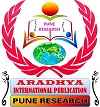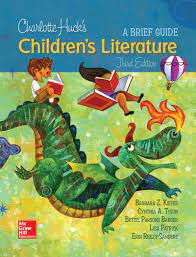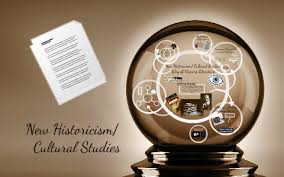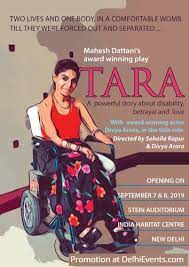VOL- 8 ; ISSUE- 5, PUNE RESEARCH - An International Journal in English (ISSN 2454-3454) JIF 3.02
8.5 ENGLISH
Area of Article : ALL

VOL- 8 ; ISSUE- 5, PUNE RESEARCH - An International Journal in English (ISSN 2454-3454) JIF 3.02
8.5 ENGLISH

VOL- 8 ; ISSUE- 5, PUNE RESEARCH - An International Journal in English (ISSN 2454-3454) JIF 3.02
8.5.1 ENGLISH

This paper attempts to study Svetlana Alexievich’s use of the documentary style in her first book translated into English as The Unwomanly Face of War: A Oral History of Women in World War II. Alexievich is a journalist turned novelist who predominantly practises a style of literary journalism. She received the Nobel Prize for literature in 2015 specifically for her use of documentary prose in a new kind of literary genre. The book that this work examines is explicitly a collection of interviews with female combatants that served in the Second World War for erstwhile USSR or Soviet Union. The paper explores the array of approaches and the aesthetics of Svetlana Alexievich’s construction of documentary fiction in the book.
Keywords Documentary prose, fiction, Nobel Prize, Svetlana Alexievich, new genre.
VOL- 8 ; ISSUE- 5, PUNE RESEARCH - An International Journal in English (ISSN 2454-3454) JIF 3.02
8.5.2 ENGLISH

This paper focuses on how visually challenged students learns English through Assistive Technology in their daily life. Learning a foreign language is important for everybody, particularly if one’s mother tongue is not very widespread and given the demands for communication skills in modern society, including the use Internet Language learning is even more important for visually impaired people, in order to reduce the gap caused by lack of sight or by severe visual impairment. At present only a small minority of visually impaired people are proficient in Braille reading. This is due to the fact that the majority of them suffer from loss of sight when they are young, or adult, that is too late in order to master the Braille reading method, which is based on the sense of touch. Learning a foreign language in the traditional way, that is by combining spoken and written words, becomes very difficult or impossible, owing to the fact that the individual can no longer rely on his ability to manipulate written words (reading/writing). The use of technology in education has closely mirrored the development of the personal computer. Since their introduction in the late seventies, personal computers have developed in speed, power and ease of use. Many early innovations in educational technology grew out of a desire to help students with various physical and learning disabilities overcome barriers to success in school and how Assistive Technology gives a space to benefit the students with a broad spectrum of learning needs, including English Language Learners.
Keywords: Learning English, Visually Challenged, Use of Mobility, Internet, and Assistive Technology.
VOL- 8 ; ISSUE- 5, PUNE RESEARCH - An International Journal in English (ISSN 2454-3454) JIF 3.02
8.5.3 ENGLISH

Mermaids, centaurs, goblins and elves, are fantastical creatures in children’s literature that have existed for centuries now and thus it is imperative we find the source of these long-standing friends of the young readers in the legends and mythologies of different cultures. Greek, Roman, Egyptian, Babylonian and several other cultures and civilisations have their own brand of mythological humanoids and semi-humans that were induced into the fantasy literature meant for children. Exceptionally popular children’s fiction rife with these creatures include Lord of the Rings trilogy by J. R. R. Tolkien and Harry Potter series by J. K. Rowling.
Keywords: Children’s literature, mythology, folklore
VOL- 8 ; ISSUE- 5, PUNE RESEARCH - An International Journal in English (ISSN 2454-3454) JIF 3.02
8.5.4 ENGLISH

"Thick Description" is a term used by the cultural anthropologist Clifford Geertz. He described the practice of thick description as a way of providing cultural context and meaning to human actions and behaviour, as opposed to "thin description" which is a factual account without any interpretation. A thin description lacks context. It describes something without explaining its cultural significance. A thick description describes not only the action, but its significance. Thick description includes voices, feelings, actions and meanings (Ponterotto, 2006). The example most commonly used to explain 'Thick description' comes from Ryle. He argued that if someone winks at us without a context, we don't know what it means. We can report on the wink (thin description).
VOL- 8 ; ISSUE- 5, PUNE RESEARCH - An International Journal in English (ISSN 2454-3454) JIF 3.02
8.5.5 ENGLISH

Mahesh Dattani is a man of versatile genius who is well known as an actor, director, playwright as well as author. His name shines as bright as those of Girish Karnad, Badal Sarkar, and Anita Nair in the realm of Indian English Drama. He rendered a memorable service to the granary of Indian English Drama. His play Tara which was published in 1995 highlights modern social concerns such as gender inequality, ethical deterioration of the medical profession, corruption, identity, guilt, and so on. The present paper is an attempt to shed light on the multi-dimensional aspects projected in the play. Dattani speaks truly. He portrays society as it is. Especially, in the play, Dattani addresses the problem of gender discrimination in a detailed and complete manner.
Keywords: Mahesh Dattani, social concerns, gender inequality, corruption, identity, guilt.